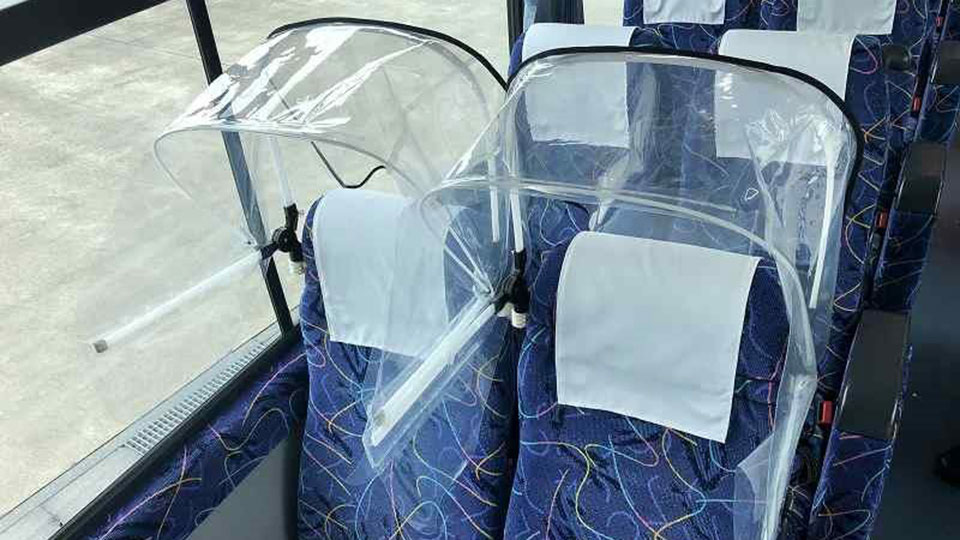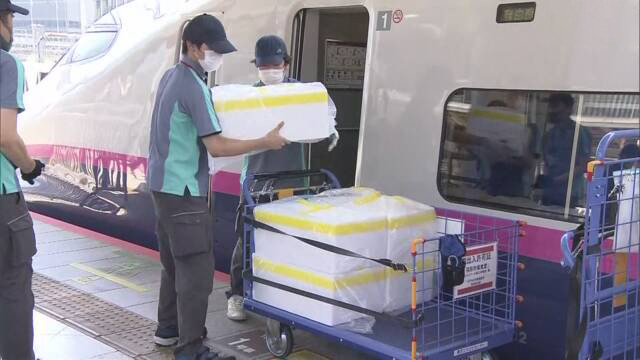In May, when the country was under a state of emergency, the number of passengers on the Tohoku Shinkansen dropped to 10% of the same period last year. The figure has been creeping back up since then, but by late August was only around 30% of what’s typical.
To try to claw back some of the lost revenue, rail operator JR East has begun transporting seafood to the capital from the northeastern city of Ishinomaki. Fisheries say the new service is significantly faster than trucking, and means they can get seafood to restaurants in central Tokyo in a fresher condition.
JR East official Hamada Tsuyoshi says the new service makes use of the Shinkansen’s two key strengths: speed and punctuality. He also says the rail company wants to help communities by transporting local products.
Though the service has been limited to seafood so far, JR East plans to increase the types of luggage it handles.
Bus operator develops droplet-control device

Sightseeing bus operator Sawaki Kanko, based in Ibaraki Prefecture, is trying to win back passengers with new protective measures.
The firm teamed up with a baby-goods manufacturer, among other parties, to create new plastic hoods for the seats that can help block droplets from all directions. They are produced using technology usually employed to make hoods for strollers.
The company already had standard infection control measures in place, but executives hope the new hoods will help passengers feel more reassured that it’s safe to ride their buses.
Future of the “Go To Travel” campaign
The government is trying to boost the transport and travel industries with its “Go To Travel” campaign. Launched in July, it offers people subsidies on transport and coupons to spend at their destination. Tokyo and its residents were originally excluded from the campaign because of a surge in infection numbers, but the capital is due to be added on October 1.
And a government subcommittee has proposed measures to promote travel in small groups. Ideas include discount rates for off-season travel and the formulation of industry-led guidelines for infection control specific to different travel settings, such as transportation, sightseeing, and eating and drinking.

